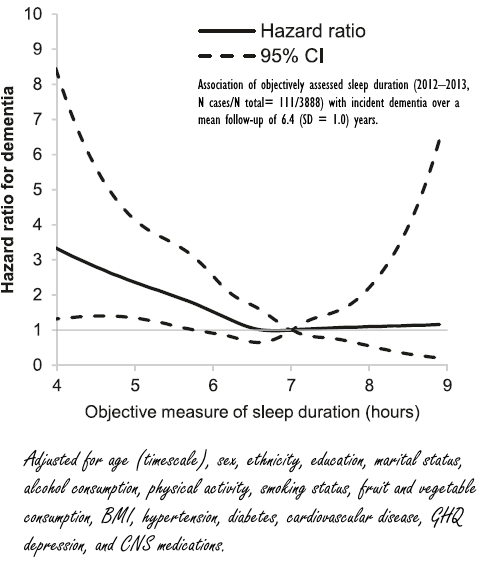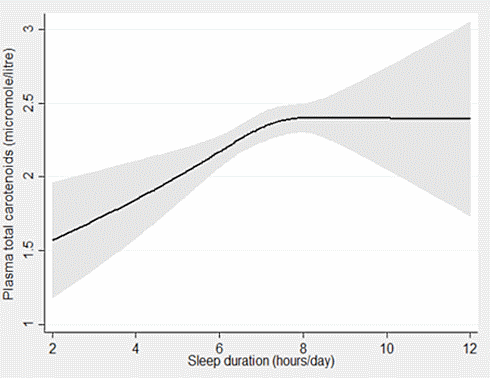|
Definition: "An ergogenic aid is any substance or phenomenon that enhances performance "
|
|
||||||||
13.07.2021 |
|
|
This many hours of sleep you need to prevent dementia
People over the age of 50 who consistently sleep too little, and who don't get more than 6 hours of sleep per day, are 30 percent more likely to have dementia at the age of 75 than people over the age of 50 who sleep 7 hours per day.
Study
Results
The study participants who consequently reached an average of 6 hours of sleep at the age of 50, 60 and 70 were 30 percent more likely to develop dementia than the participants who achieved 7 hours of sleep per day.
In a sub-study in 2012-2013, the researchers recorded the amount of sleep in 3888 study participants once using an accelerometer. After all, asking is good, but measuring is better. The researchers then followed the participants for 6.8 years.
It also turned out that the participants who clocked 7 hours of sleep every day were less likely to develop dementia than the study participants who slept fewer hours. The less sleep, the greater the chance.
In this study, done among individuals who are not physically active, 7 hours of sleep was optimal. However, sleeping more than seven hours did not lead to a significant increase in the risk of dementia.
Mechanism
Conclusion
Source: More: Archives:
|
|
|||||||||||||||




